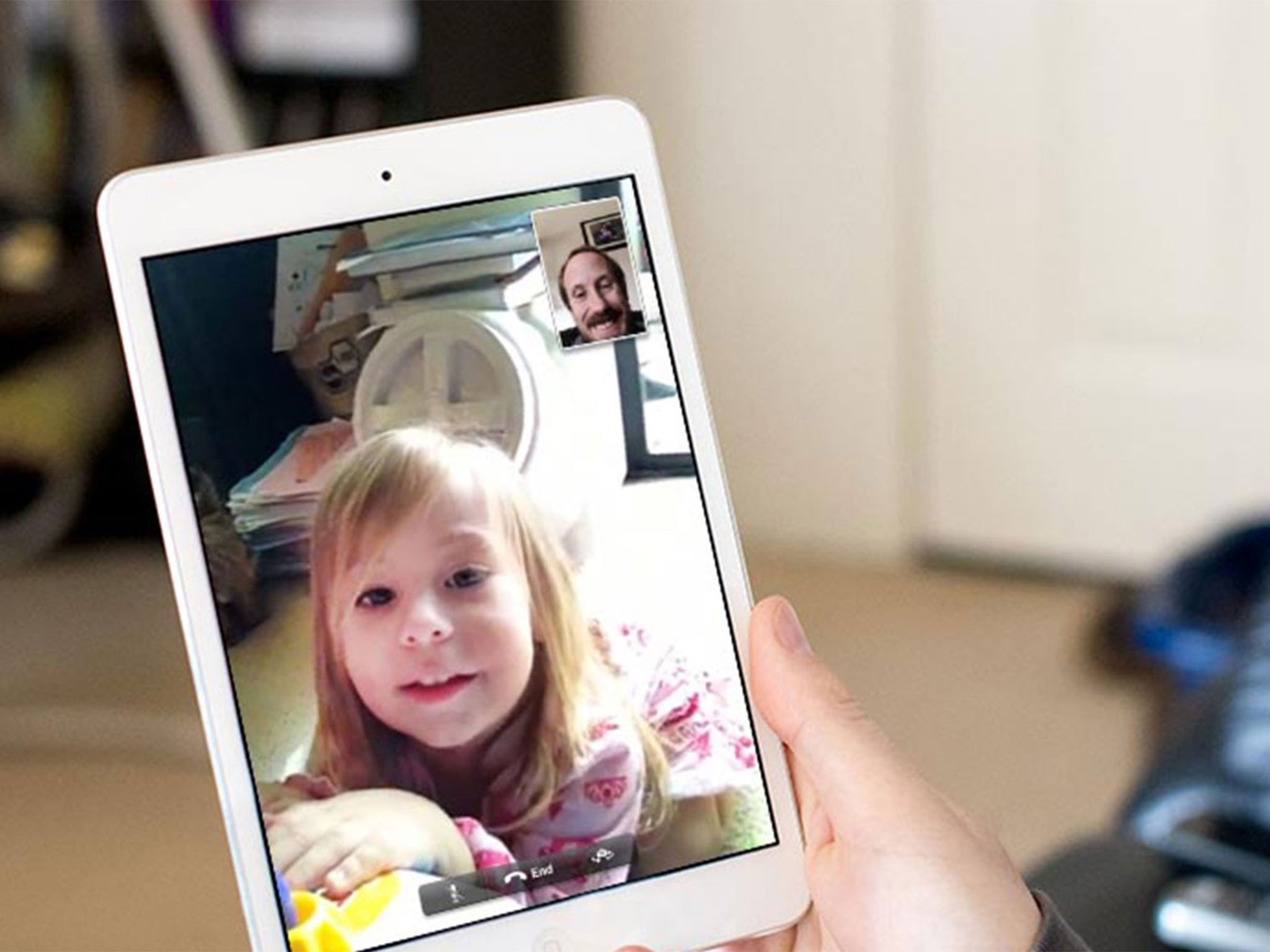How BabyTalk made remote therapy accessible with iPad and FaceTime

Nestled in Redwood City, California, Weingarten's Children's Center provides an invaluable service for kids who are able to attend. Kathy Sussman is executive director at Weingarten, and a passionate advocate for the children, aged newborn to three years, served by BabyTalk. Kathy and the BabyTalk program, however, were determined to extend those resources far beyond the walls of the school — to dozens of children in 28 rural counties whose parents couldn't afford the time and loss of income it would take to travel for speech therapy.
That therapy is critically important for very young children, especially for those with cochlear implants — devices that bypass the inner ear and deliver sound directly to the auditory nerves. Those children need to learn how to process and make sense of the sound information, and that requires an expert coaching and a lot hard work.
When the children's families live far from in-person therapy, when they have limited resources, limited eduction, and limited language skills themselves, telemedicine — the ability to do the therapy remotely — is the only practical solution.
"Traditional telemedicine was expensive, cumbersome, and restrictive."
Studio cameras, crews, and the resources needed to run them were cost-prohibitive for the school, never mind the families, Kathy had to look into alternatives. The solution she found was the iPad. Not only was it relatively inexpensive, it could be moved as the children and parents move.
Kids, especially at that young an age, don't stay still for long. Moreover, in dwellings with extended families, finding someplace quiet enough for a therapy session can often involve going outside or to a park. The iPad can go almost anywhere the family needs it to.
"FaceTime has end-to-end encryption. It was the only system Stanford would accept."
Because of HIPPA, the The Health Insurance Portability and Accountability Act, any conversations with a therapist also have to be protected, and that means end-to-end encryption.
After exploring options including Skype, whose lack of end-to-end encryption made it unusable for Stanford, Kathy settled on FaceTime. Not only was FaceTime secure enough to satisfy Stanford, it was built right into the iPad.
iMore offers spot-on advice and guidance from our team of experts, with decades of Apple device experience to lean on. Learn more with iMore!
Fueled by a $260,000 grant, the BabyTalk program was able to hire therapists, setup computer systems and high-bandwidth internet connections on their end, and supply iPads, cases, stands, and mobile broadband connections for 30 children in need.
"The iPad was seamless. It was incredibly easy for parents to use."
The iPad itself proved simple for the parents. When it came time for their weekly appointments, all they had to do was answer the FaceTime call.
Connectivity issues did occur at times, and while BabyTalk lacked dedicated IT support resources, they managed to troubleshoot them anyway. Since the stands for the iPads also included chargers, and since Parental Restrictions prevented them from being used for games or other non-therapeutic apps, they were almost always charged, and had more than enough data for the sessions.
Because the iPad was so portable, parents and children seldom missed sessions. There were no travel conflicts or delays to worry about, and in one case when a child had to be taken in for medical treatment, a family member was easily able to bring the iPad along.
"Sessions last for one hour and are focused on the parent."
Moreover, even if the child was sick or otherwise unable to participate, since the parent had the iPad and FaceTime, the speech therapist could make sure the parent got all the information they needed to help their child continue with his or her development.
That could include anything from making the parents feel more comfortable with the cochlear implant equipment itself, to troubleshooting, to helping their children become accustomed to everyday sounds like doorbells, to working on language skills.
Because FaceTime is such a visual means of communication, it also helped everyone feel better connected, and made it so parents weren't afraid to ask questions. That helped create a bond and made the experience engaging, with further reduced cancelations and missed appointments.
"It's a gift."
The great news is that BabyTalk is working. The challenge is that, with the initial three year grant running out, they'll need additional funding to maintain and expand the program. If you want to support the work Kathy and the team at BabyTalk are doing, you can donate now.

Rene Ritchie is one of the most respected Apple analysts in the business, reaching a combined audience of over 40 million readers a month. His YouTube channel, Vector, has over 90 thousand subscribers and 14 million views and his podcasts, including Debug, have been downloaded over 20 million times. He also regularly co-hosts MacBreak Weekly for the TWiT network and co-hosted CES Live! and Talk Mobile. Based in Montreal, Rene is a former director of product marketing, web developer, and graphic designer. He's authored several books and appeared on numerous television and radio segments to discuss Apple and the technology industry. When not working, he likes to cook, grapple, and spend time with his friends and family.
